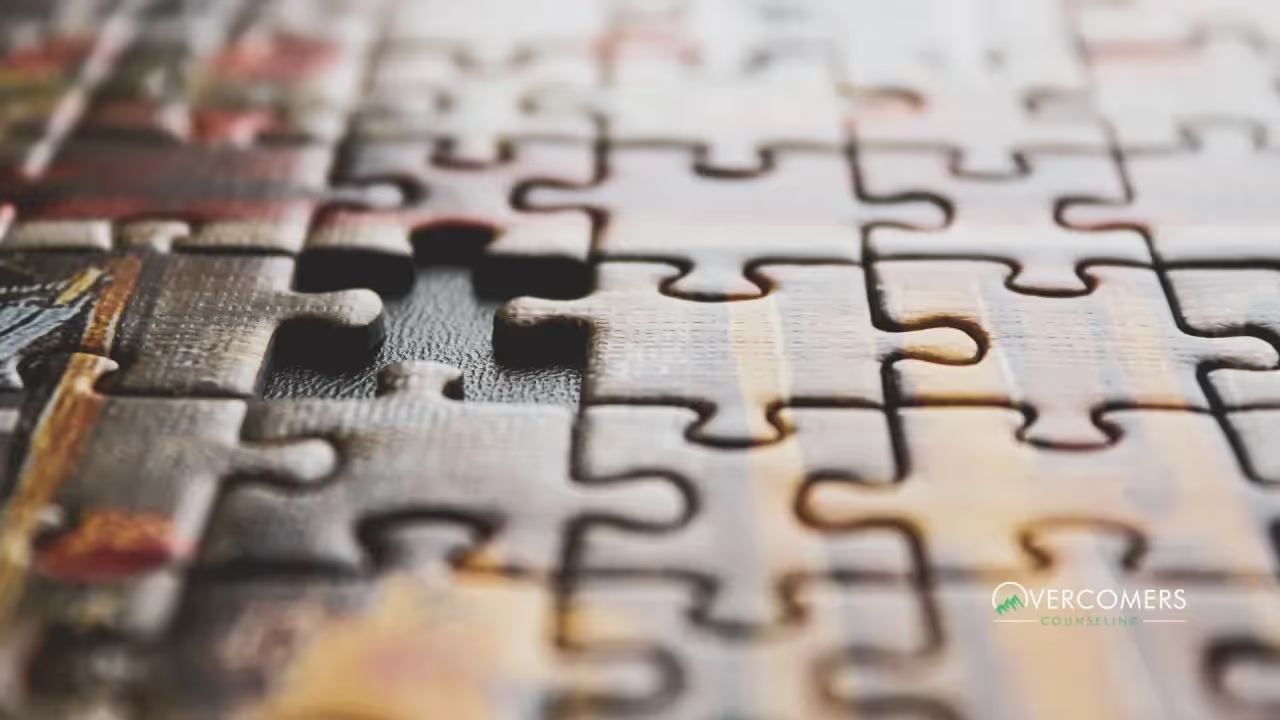Memory loss is one of the more frustrating traits of bipolar disorder.More than just frustrating, memory loss might be an overwhelming challenge to bipolar...

Memory loss is one of the more frustrating traits of bipolar disorder.More than just frustrating, memory loss might be an overwhelming challenge to bipolar individuals.Although support for bipolar disorder from loved ones can be helpful, in this case, being able to manage bipolar memory loss is more important.People living with bipolar disorder benefit immensely from a structure.This structure is about the consistency of a framework of daily activities.It is a great way to manage bipolar memory loss since the daily repeated activities will be extra to remember because they happen frequently.Lifestyle captures how a person chooses to live their life.The choice of lifestyle is very vital for bipolar individuals.Living without regulation and moderation will exacerbate some traits of bipolar disorder, like memory loss.Exercise is one of the few ways to manage bipolar memory loss by improving memory function.Exercise is a significant health boost for the body; among its health benefits is improved memory performance.Discover effective ways to manage bipolar memory loss below.
Memory loss can occur from being overwhelmed.Bipolar disorder is a mental health condition that is characterized by extreme emotional contrasts.The emotional contrasts associated with bipolar disorder are typically extreme and lead to memory loss.For instance, during the emotional high, you might be extroverted, outgoing, and friendly.The reverse would be during the lows, in the form of depression that might cause withdrawal and isolation.Both of these extremes can cause bipolar memory loss.In both states of mania and depression, bipolar person is likely overwhelmed by their feelings and prone to memory loss.To reduce the frequency of bipolar memory loss, consider addressing the causes of an extreme emotional reaction.An excellent place to start here is to reexamine lifestyle choices.A bipolar person would benefit from living a consistent and regulated lifestyle.You can reevaluate your priorities in line with making lifestyle changes.Although it might feel unfair to make certain changes, try to remember it is geared towards a better life.An effective way to manage bipolar memory loss is to make lifestyle changes.

People living with bipolar disorder have challenges in their everyday life.Although the biggest challenge is coping with emotional extremes, other challenges like poor concentration, interpersonal conflicts, and memory loss exist.Memory loss is a challenge that affects daily living.A great way to manage bipolar memory loss is to use structure.The essence of the structure is in two folds.The first is that living a consistent life is ideal for dealing with bipolar disorder generally.The second benefit is creating a structure with daily routines makes it easier to remember things.You can create a rough idea of how your day goes with particular activities each day maintained daily.For instance, you might have many activities, but you commit to sleep between 8:00 - 8:30 daily.Even with changes to the activities on your schedule, a general structure should accommodate the changes whilst maintaining the most essential bits.An easy way to start your structure is by identifying the core parts of the structure.This is usually going to involve your bedtime routines and other repetitive actions daily.Sticking to these habits first and forming other habits subsequently.
Physical movement in the form of exercise is beneficial for most people.Exercise is particularly essential for people with bipolar disorder.First, people with bipolar disorder benefit from routines, and exercise is a routine that will offer general health benefits.It is one of the few ways to manage bipolar memory loss that improves and protects memory.Exercise has many health benefits that it provides the body.A study has found that exercise also improves memory function.This makes exercise efficient for coping with bipolar disorder.A question that usually arrives is what type of exercise would suffice for routine building and fitness.Some studies state that activities like walking, jogging, biking, and even dancing are effective exercises.Interestingly, in the long term, most people find exercise an easy routine to maintain, almost a second nature.However, in the short term, exercise can be challenging for people.Try to focus on the positives of your general health to be appropriately motivated to exercise consistently.
Sleep is a pivotal part of bipolar management generally. Insomnia, poor sleep quality, irregular sleeping, and sleeping challenges likely adversely impact a bipolar person.Sleep issues could help trigger a bipolar episode.Regular, consistent, and good sleep is pivotal to managing bipolar disorder.Keeping your mood stable is a pivotal part of keeping stable memories.Thus, maintaining a healthy and consistent sleep pattern will help stable memories.In addition, sleep is also a body process to aid memory function.Like exercise, good sleep quality improves the body's memory retention and memory processing.Regular, quality sleep is a critical way to manage bipolar memory loss.Good sleep should include a consistent bedtime with the necessary hours of sleep.However, some people struggle with sleep naturally due to their disorder.It would be worth seeing a doctor for additional advice on improving sleep.
Substance use and alcohol use are significant challenges for bipolar individuals to manage.Bipolar people are more likely to struggle with the usage of recreational drugs or alcohol.These substances are also linked to triggering bipolar episodes.Thus, alcohol and other recreational substances are very harmful to bipolar people.Try to avoid usage or reliance on either alcohol or substance abuse.Outrightly avoiding alcohol and recreational drugs is a good way to deal with these substances.For other bipolar people that have already consumed alcohol and drugs, it is essential to remember the impact of these drugs on the body.Beyond the temporary high, remember the other unpleasant occurrences that accompanied the high.Alcohol and recreational drugs might also seem like appealing solutions to the symptoms of bipolar disorder.However, alcohol and recreational drugs are only indulgences; seeking professional help and treatment is the way to deal with the symptoms of bipolar disorder.Abstinence from alcohol and recreational drugs will help manage bipolar memory loss.
Maintaining a stable mood greatly impacts bipolar memory loss.This means receiving support for bipolar disorder generally will indirectly aid bipolar memory loss.Other ways to manage bipolar memory loss include making lifestyle changes, adding structure, exercising, maintaining good sleep habits, and avoiding alcohol and recreational drugs.
Bipolar Memory Loss: Tips & Tricks for Improving Your Memory | bpHope.com
Bipolar Disorder Might Affect Your Memory I Psych Central
Bipolar disorder and memory: Effects, factors, and outlook (medicalnewstoday.com)
Understanding Bipolar Disorder Memory Loss (verywellmind.com)
Supporting someone with bipolar disorder starts with compassion, patience, and a solid understanding of what they’re navigating. Offer steady emotional support, encourage them to stay connected to treatment, and avoid taking their symptoms personally. And remember, caring for yourself matters too. Overcomers Counseling can help guide both you and your loved one through these ups and downs.
Five common signs of bipolar disorder include dramatic shifts in mood, energy, and activity levels. This often shows up as episodes of mania—high energy, excitement, or irritability—and episodes of depression marked by sadness or hopelessness. Other signs may include disrupted sleep, racing thoughts, and impulsive or risky decisions. If these sound familiar, Overcomers Counseling can help you sort through the noise and find clarity.
Absolutely. Bipolar disorder may be a lifelong companion, but with consistent treatment and support—like the kind offered at Overcomers Counseling—you can build a life that feels steady, healthy, and genuinely yours. Think of it like learning to drive on a windy mountain road: tricky at first, but totally manageable with the right guidance.
There isn’t one single cause of bipolar disorder—it’s usually a blend of genetics, brain chemistry, and life experiences like stress or trauma. Think of it as a complex puzzle with several interconnected pieces. When you’re ready to make sense of those pieces, Overcomers Counseling is here to help you put the picture together.
Living with bipolar disorder can feel like riding a roller coaster you didn’t exactly sign up for—episodes of deep depression on one end and bursts of high energy or euphoria on the other. Everyone’s experience looks a little different, and at Overcomers Counseling, we recognize that your story deserves to be understood on its own terms.